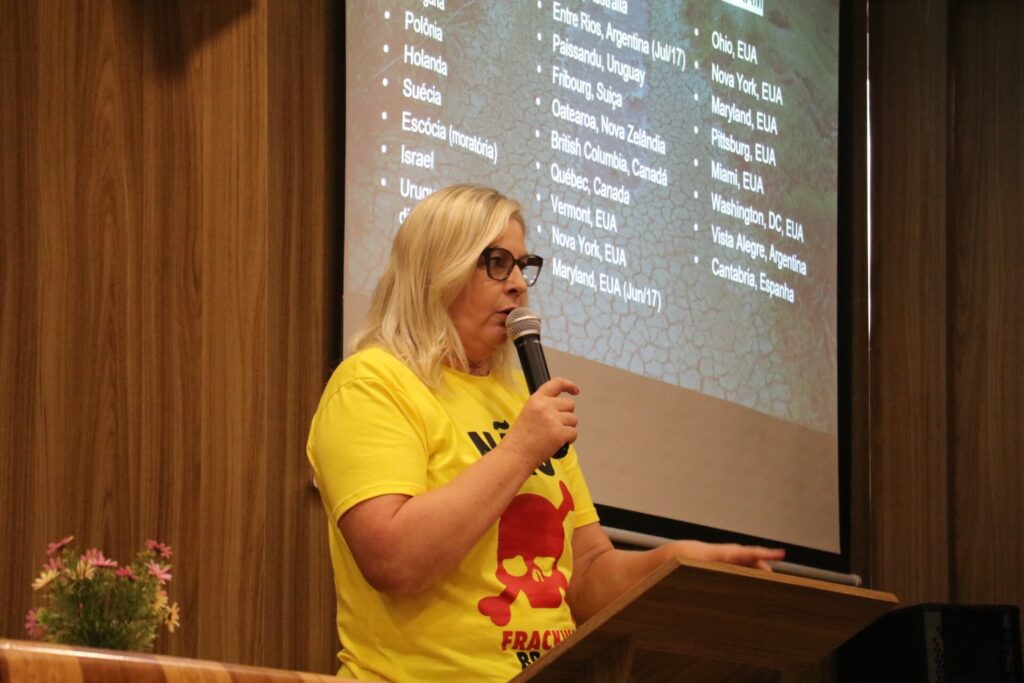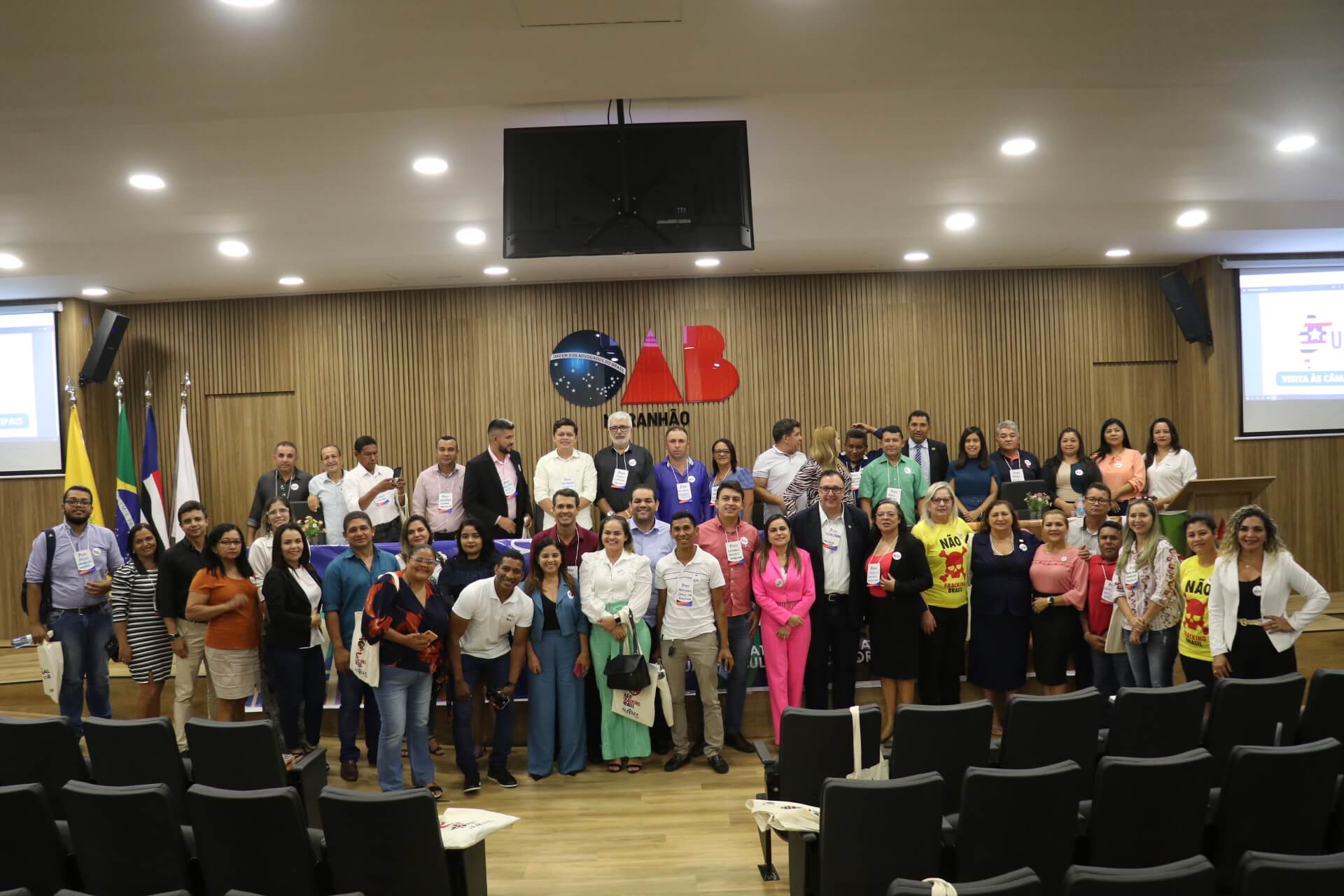Event that brought together parliamentarians from the municipalities of Maranhão featured actions by the No Fracking Brazil team
What is fracking?
Fracking – also called hydraulic fracturing – is a process that involves injecting large volumes of water, chemicals and sand at high pressure into underground rock layers to release trapped natural gas. Despite being a technique already used in several countries, it is controversial because it causes environmental and ecological damage, including contamination of groundwater, release of greenhouse gases, induced earthquakes, etc.
On August 31, 2022, the National Meeting of Municipal Legislatives and the Women Councilor Forum began, held at the OAB – Brazilian Bar Association in São Luís, Maranhão. The event brought together more than 130 councilors from 17 cities in Maranhão and was organized by the Union of Councilors and Municipal Chambers (UVCM). In addition, COESUS – Coalition No Fracking Brazil for Water and Life – participated, a campaign by the Arayara International Institute, which helped organize the event.
On the first day of the meeting, COESUS delivered to each parliamentarian a “municipal kit” against fracking, containing explanatory folders, warning posters, stickers, buttons and the model of Municipal Law against fracking, which can be adapted for each city by local legislators.
The technician Suelita Röcker, from ARAYARA, started the event with a training session on the theme “Fracking: a threat to the future of Brazil” , addressing the risks and impacts of the method in the municipalities of Maranhão. The councilors present reported not having information about the techniques presented and proposed the elaboration of a motion asking the governor for a five-year moratorium, so that everyone can deepen their knowledge about hydraulic fracturing. All representatives of the cities present at the event signed the motion and pledged to present bills against fracking in their municipalities.

Technician Suelita Röcker speaking at the National Meeting of Municipal Legislative Members and the Women Councilwoman Forum, held at OAB – Maranhão
The COESUS communication team covered the event, interviewing participants who spoke out against fracking. On the second day of the meeting, two candidates for governor of the state, Simplício Araújo (Solidariedade) and Lahesio Bonfim (PSC) , were present and were asked about the energy plans proposed for their mandates.
The event started the series of face-to-face actions by COESUS – Coalizão Não Fracking Brasil – in Maranhão and strengthened the fight against the method in the state. It ended with the negotiation of three public hearings in the municipalities of Santa Inês, Balsas and Loreto, where councilors defended the prohibition of the use of this technique. The meeting reaffirmed the commitment of municipal legislators to the protection of the environment and the search for a sustainable future, free from the risks and negative impacts of fracking.












